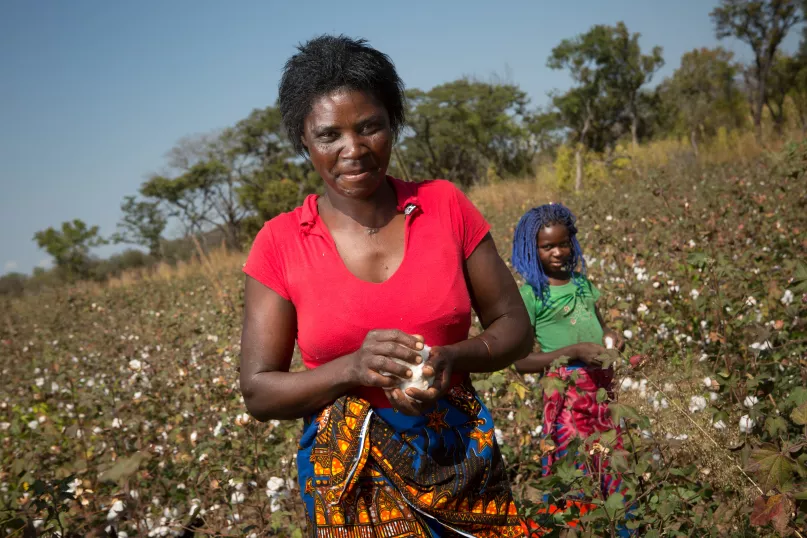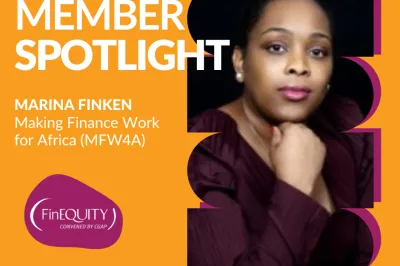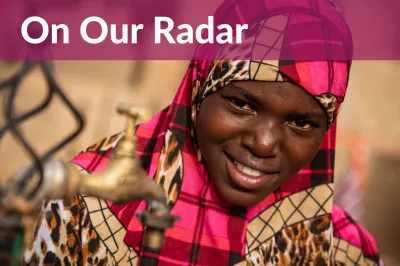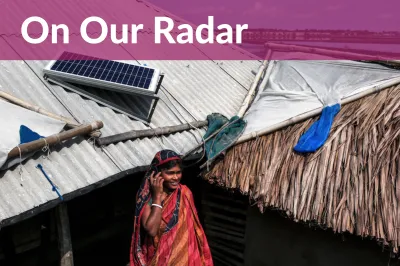How Can Gender-Intelligent Design Help Mozambican Women Entrepreneurs?

Of the more than 75% of economically active Mozambicans who derive at least part of their livelihoods from small and informal businesses, 60% are women. However, despite their evident importance to the economy, Mozambican women entrepreneurs still face great challenges in accessing financial services and products that could help them find personal economic stability and business success. According to Finscope survey (FSDMo et all.,2020), significant proportions of Mozambicans are not able to access financial services. Almost half (48%) of women are excluded (11% use informal financial services, 23% use formal financial services (Mobile Network Operators) excluding banking, and 18% are banked).
Therefore, the design of gender-intelligent solutions is crucial to overcoming the challenges faced by women in Mozambican society and is an excellent opportunity for companies to reach a wider customer base and enable women entrepreneurs to grow their incomes. To facilitate that, the Women in Business (WIN) program, a partnership between SIDA and TechnoServe, employed a market-systems approach to support women’s economic empowerment. This three-step approach enlists local partners to identify gaps and unlock solutions to engage women in their businesses, leveraging the longstanding culture of female entrepreneurship in Mozambique.
Identify partners who are aware of the potential of including women in their business model
To identify potential partners, WIN issued a nationwide call for proposals to financial service providers asking them to present their business case for women’s inclusion. AfricaWorks Mozambique (AW), a microfinance institution with a primarily rural client base, prepared a proposal focused on aspects that impacted women’s lives in the local context and migrating cash loan repayments to digital mobile money. AW is one of the few microfinance institutions (MFIs) in Mozambique that deliberately focuses on serving women, who comprise 57% of its 9,000-plus client base.
AW’s loans had been distributed to mixed groups of up to 10 people via formal bank transfers to individual members. Loans were assigned to the group and had to be repaid monthly, in four-month cycles. While women (and men) have access to credit, AW’s clients had to contend with multiple challenges in accessing financial services, including:
- Traveling long distances to physically meet with other group members - particularly disadvantageous for women who often have larger family responsibilities which makes it more difficult to be away from home for long periods.
- Carrying cash to the group meeting place, increasing security concerns.
- Closing their businesses or leaving them in the care of others, which represented a decrease in sales and security.
AW recognized that these challenges presented an obstacle for many potential customers, particularly women entrepreneurs.
Design services that are more convenient for women and customers at large
In 2020, WIN and AW started a partnership to tackle these challenges, tailoring AW’s offerings with the goal of increasing the number of women with access to financial services. By setting up a connection between AW's loan payment platform and the mobile money providers (including M-Pesa), WIN was able to facilitate electronic repayments. Additionally, M-Pesa representatives taught AW's loan officers and staff how to use the platform so they could train and support their clients.
At the same time, WIN revised both AW's manuals for staff and clients to ensure that they included instructions about the use of mobile money and how to repay loans using mobile money – all using a gender lens. These manuals relied on short text, simple language and step-by-step illustrations to show how to operate the platforms.
Measure the impact of inclusion of women/women micro-entrepreneurs as final users
To evaluate the impact of this shift in approach, WIN and AW tracked several key metrics.
- By the end of June 2022, all 887 AfricaWorks groups were trained on how to use mobile money for loan repayment; 58% of those clients were women
- Almost 3,000 women were repaying loans using mobile money; 63% of those clients were women
- After making the M-Pesa linkage between the AW platform and the bank platform, over 80% of clients reported having made at least one loan repayment to AW using mobile money (up from 2% of women and 3% of men pre-pilot)
This digitization effort positively influenced the security, mobility and financial inclusion of women and men in the rural financial system. For instance, the integration of loan repayments via mobile money has given beneficiaries the opportunity to repay loans remotely, for example from where they do business and care for family. It also encouraged almost 90% of women to stay in AW's loan pool and thrive in their businesses.
AW and WIN’s partnership highlights the enormous potential of the financial services sector to support women’s economic empowerment. However, WIN notes that this particular solution cannot be copied and pasted to serve the needs of entrepreneurs in regions with limited access to mobile money agents, unreliable mobile networks and internet connection, and/or low literacy levels. Creating more inclusive financial sectors means understanding the unique needs of client segments and designing gender-intelligent solutions for these segments.
Check out more info on Women in Business - Financial Inclusion 2022.


